Jesus said to Luisa:
My Will alone [symbolized by the Sun] has this power to convert Its virtues into one’s nature – but only for one who abandons herself prey to Its light and to Its heat, and keeps the tenebrous night of her own will away from her, the true and perfect night of the poor creature. (September 3, 1926, Vol. 19)
The human will, when it fully rejects the Divine Will, forms the “perfect night of the poor creature.” Really, this is what the life of the Antichrist symbolizes: that period when he “opposes and exalts himself above every so-called god and object of worship, so as to seat himself in the temple of God, claiming that he is a god” (2 Thess 2:4). But not only the Antichrist. His way is paved when a vast portion of the world and the Church reject Divine truth in what St. Paul calls an “apostasy”, or revolution.
…the apostasy comes first and [then] the lawless one is revealed, the one doomed to perdition… (2 Thess 2:3)
This revolt or falling off is generally understood, by the ancient Fathers, of a revolt from the Roman empire, which was first to be destroyed, before the coming of Antichrist. It may, perhaps, be understood also of a revolt of many nations from the Catholic Church which has, in part, happened already, by the means of Mahomet, Luther, etc. and it may be supposed, will be more general in the days of the Antichrist. —footnote on 2 Thess 2:3, Douay-Rheims Holy Bible, Baronius Press Limited, 2003; p. 235
When we have cast ourselves upon the world and depend for protection upon it, and have given up our independence and our strength, then [Antichrist] may burst upon us in fury as far as God allows him. Then suddenly the Roman Empire may break up, and Antichrist appear as a persecutor, and the barbarous nations around break in. —St. John Henry Newman, Sermon IV: The Persecution of Antichrist
How close are we to this manifestation of the Antichrist? We don’t know, except to say, that all the signs of this apostasy are there.
Who can fail to see that society is at the present time, more than in any past age, suffering from a terrible and deep-rooted malady which, developing every day and eating into its inmost being, is dragging it to destruction? You understand, Venerable Brethren, what this disease is — apostasy from God… When all this is considered there is good reason to fear lest this great perversity may be as it were a foretaste, and perhaps the beginning of those evils which are reserved for the last days; and that there may be already in the world the “Son of Perdition” of whom the Apostle speaks. —POPE ST. PIUS X, E Supremi, Encyclical On the Restoration of All Things in Christ, n. 3, 5; October 4th, 1903
However, this “night” of the human will, painful as it is, will be brief. The false kingdom of Babylon will collapse and from its ruins will rise the Kingdom of the Divine Will, as the Church has been praying for 2000 years: “Thy Kingdom come, Thy will be done on earth as it is in Heaven.”
Comparing the Divine Will to electricity, Jesus says to Luisa:
The teachings about my Will will be the wires; the power of the electricity will be the Fiat Itself which, with enchanting rapidity, will form the light that will cast away the night of the human will, the darkness of passions. Oh, how beautiful the light of my Will will be! In seeing it, creatures will dispose the devices in their souls in order to connect the wires of the teachings, so as to enjoy and receive the power of the light that the electricity of my Supreme Will contains. (August 4, 1926, Vol. 19)
Unless there are factories in Heaven, clearly, Pope Piux XII was speaking prophetically of this triumph that will come, before the end of the world, of the Kingdom of the Divine Will over the “night” of the human will:
But even this night in the world shows clear signs of a dawn that will come, of a new day receiving the kiss of a new and more resplendent sun… A new resurrection of Jesus is necessary: a true resurrection, which admits no more lordship of death… In individuals, Christ must destroy the night of mortal sin with the dawn of grace regained. In families, the night of indifference and coolness must give way to the sun of love. In factories, in cities, in nations, in lands of misunderstanding and hatred the night must grow bright as the day, nox sicut dies illuminabitur, and strife will cease and there will be peace. —POPE PIUX XII, Urbi et Orbi address,March 2nd, 1957; vatican.va
After purification through trial and suffering, the dawn of a new era is about to break. —POPE ST. JOHN PAUL II, General Audience, September 10, 2003
In summary:
The most authoritative view, and the one that appears to be most in harmony with Holy Scripture, is that, after the fall of the Antichrist, the Catholic Church will once again enter upon a period of prosperity and triumph. —The End of the Present World and the Mysteries of the Future Life, Fr. Charles Arminjon (1824-1885), p. 56-57; Sophia Institute Press
…[the Church] will follow her Lord in his death and Resurrection. —Catechism of the Catholic Church, 677
—Mark Mallett is a former journalist, the author of The Final Confrontation and The Now Word, Producer of Wait a Minute, and a co-founder of Countdown to the Kingdom
Related Reading
The Popes, and the Dawning Era
The rise of the kingdom of the human will: Isaiah’s Prophecy of Global Communism
Dear Holy Father… He is Coming!

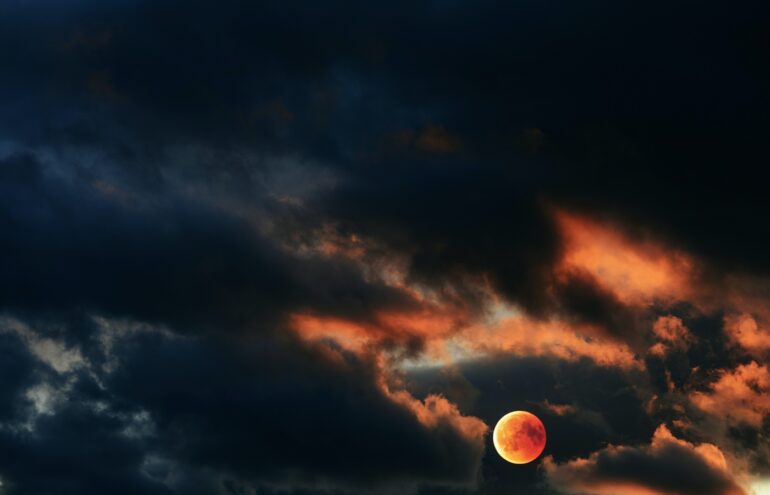

 Alicja Lenczewska
Alicja Lenczewska

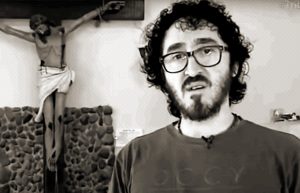
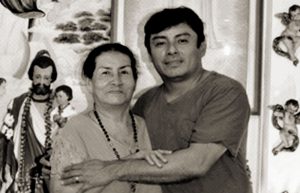
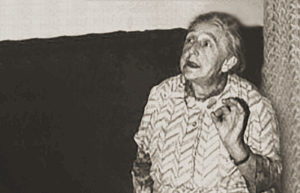 Elizabeth Kindelmann
Elizabeth Kindelmann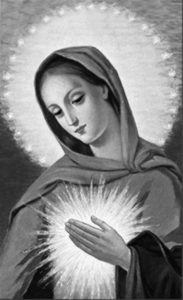 Through what became The Spiritual Diary, Jesus and Mary taught Elizabeth, and they continue to instruct the faithful in the divine art of suffering for the salvation of souls. Tasks are assigned for each day of the week, which involve prayer, fasting, and night vigils, with beautiful promises attached to them, laced with special graces for priests and the souls in purgatory. In their messages, Jesus and Mary say that The Flame of Love of the Immaculate Heart of Mary is the greatest grace given to mankind since the Incarnation. And in the not-so-distant future, her flame will engulf the entire world.
Through what became The Spiritual Diary, Jesus and Mary taught Elizabeth, and they continue to instruct the faithful in the divine art of suffering for the salvation of souls. Tasks are assigned for each day of the week, which involve prayer, fasting, and night vigils, with beautiful promises attached to them, laced with special graces for priests and the souls in purgatory. In their messages, Jesus and Mary say that The Flame of Love of the Immaculate Heart of Mary is the greatest grace given to mankind since the Incarnation. And in the not-so-distant future, her flame will engulf the entire world.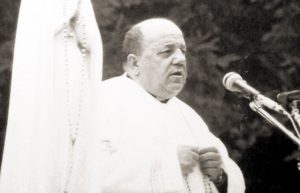 Father Stefano Gobbi
Father Stefano Gobbi Why Gisella Cardia?
Why Gisella Cardia?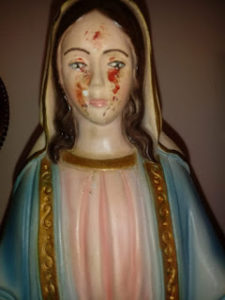 Thirdly, the messages have frequently been accompanied by visible phenomena, photographic evidence found in In Cammino con Maria, which cannot be the fruit of subjective imagination, notably the presence of the stigmata on Giselle’s body and and the appearance of crosses or religious texts in blood on Gisella’s arms. See the pictures taken from her apparition website
Thirdly, the messages have frequently been accompanied by visible phenomena, photographic evidence found in In Cammino con Maria, which cannot be the fruit of subjective imagination, notably the presence of the stigmata on Giselle’s body and and the appearance of crosses or religious texts in blood on Gisella’s arms. See the pictures taken from her apparition website 
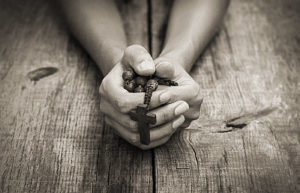 Jennifer
Jennifer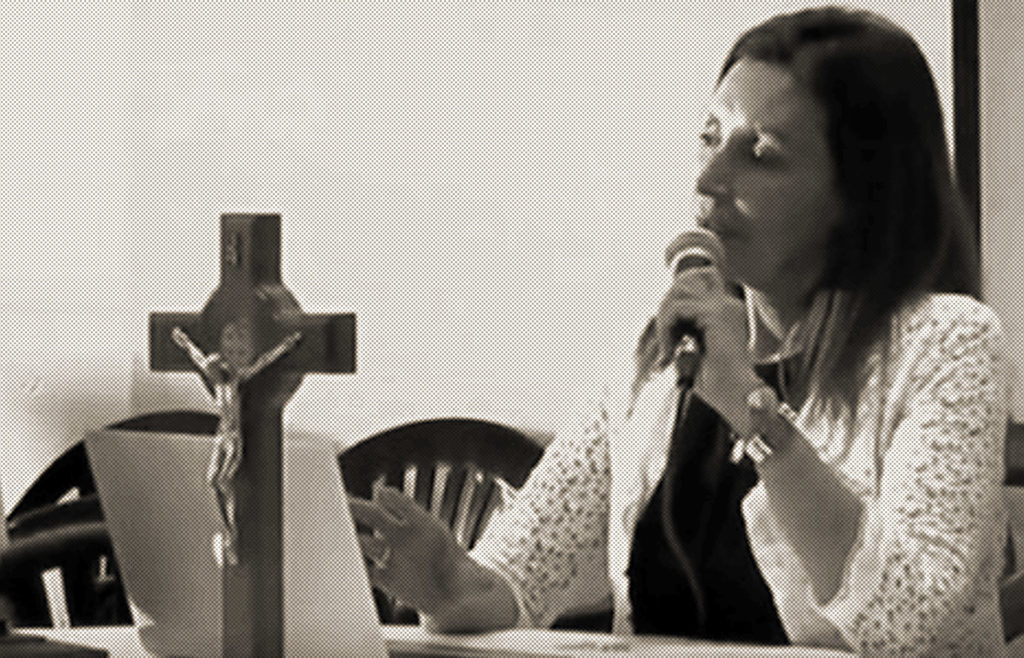
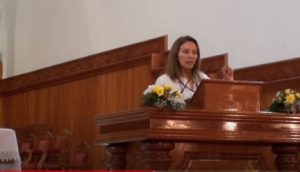
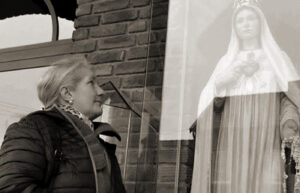 Why Manuela Strack?
Why Manuela Strack?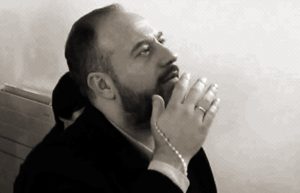

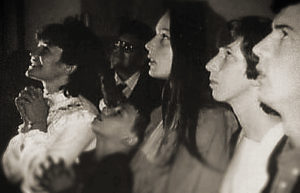 Why the Visionaries of Our Lady of Medjugorje?
Why the Visionaries of Our Lady of Medjugorje?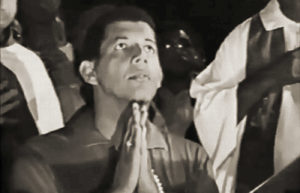 Why Pedro Regis?
Why Pedro Regis?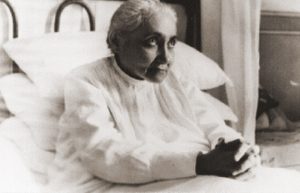 Why the Servant of God Luisa Piccarreta?
Why the Servant of God Luisa Piccarreta? of the saints. It wasn’t until she became a “Daughter of Mary” that the nightmares finally ceased at the age of eleven. In the following year, Jesus began to speak interiorly to her especially after receiving Holy Communion. When she was thirteen, He appeared to her in a vision that she witnessed from the balcony of her home. There, in the street below, she saw a crowd and armed soldiers leading three prisoners; she recognized Jesus as one of them. When He arrived beneath her balcony, He raised his head and cried out: “Soul, help Me!” Deeply moved, Luisa offered herself from that day on as a victim soul in expiation for the sins of mankind.
of the saints. It wasn’t until she became a “Daughter of Mary” that the nightmares finally ceased at the age of eleven. In the following year, Jesus began to speak interiorly to her especially after receiving Holy Communion. When she was thirteen, He appeared to her in a vision that she witnessed from the balcony of her home. There, in the street below, she saw a crowd and armed soldiers leading three prisoners; she recognized Jesus as one of them. When He arrived beneath her balcony, He raised his head and cried out: “Soul, help Me!” Deeply moved, Luisa offered herself from that day on as a victim soul in expiation for the sins of mankind. immobile, rigid-like state that appeared almost as if she were dead. It was only when a priest made the sign of the Cross over her body that Luisa regained her faculties. This remarkable mystical state persisted until her death in 1947—followed by a funeral that was no little affair. During that period in her life, she suffered no physical illness (until she succumbed to pneumonia at the end) and she never experienced bedsores, despite being confined to her little bed for sixty-four years.
immobile, rigid-like state that appeared almost as if she were dead. It was only when a priest made the sign of the Cross over her body that Luisa regained her faculties. This remarkable mystical state persisted until her death in 1947—followed by a funeral that was no little affair. During that period in her life, she suffered no physical illness (until she succumbed to pneumonia at the end) and she never experienced bedsores, despite being confined to her little bed for sixty-four years.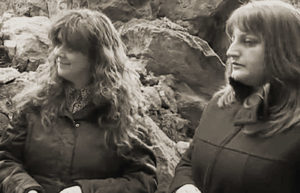 Why Simona and Angela?
Why Simona and Angela?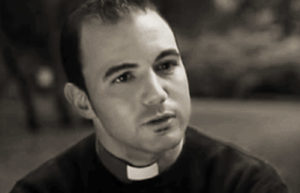
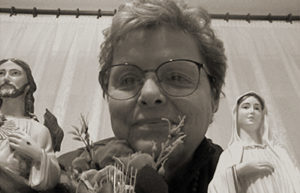 Valeria Copponi
Valeria Copponi